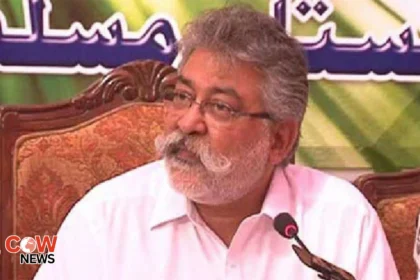Introduction
In a recent and shocking development, the Punjab government has decided to cancel the registration of a college campus following a disturbing student rape case. This incident has not only raised serious questions about safety and security in educational institutions but also highlighted the urgent need for reform in how such cases are handled by authorities. This article delves into the details of the incident, the subsequent actions taken by the Punjab government, the reactions from various stakeholders, and the broader implications for student safety and institutional accountability.
- Introduction
- Background of the Incident
- Initial Reports and Reaction
- Government’s Response
- Rationale for Cancellation
- Legal Implications
- Implications for Student Safety
- Need for Comprehensive Policies
- Awareness and Education
- Strengthening Legal Frameworks
- Reactions from Stakeholders
- Students and Activists
- Educational Authorities
- Parents and Community Leaders
- Broader Societal Implications
- Cultural Change
- Role of Media
The student rape case has sent shockwaves throughout the community, prompting a nationwide outcry for justice and stricter measures to protect students. Victims and advocates have long emphasized the vulnerabilities faced by students within educational institutions, where safety should be a fundamental right. The Punjab government’s decision to revoke the college’s registration serves as a significant response to the public’s demand for accountability and transparency in handling such grave matters. It raises critical questions about the role of educational institutions in safeguarding their students and their responsibilities when faced with allegations of misconduct.
In the aftermath of this incident, there have been widespread calls for comprehensive reforms in policies regarding student safety and the reporting of sexual offenses. Educational institutions must not only implement effective safety measures but also foster an environment that encourages victims to come forward without fear of stigma or retaliation. This situation has also highlighted the need for better training for faculty and staff on handling sensitive cases and providing adequate support for victims. The long-term implications of this case could influence how educational authorities approach student welfare, ensuring that the rights and safety of students take precedence in all institutional policies moving forward.
Background of the Incident
The rape case that prompted the cancellation of the college’s registration emerged from a series of disturbing events that unfolded on campus. Reports indicate that a female student was allegedly assaulted by a fellow student, leading to widespread outrage among the student community and the general public. As details of the case surfaced, it became evident that not only had a grave injustice occurred, but there were also significant failures in the college’s response to the incident.
Initial Reports and Reaction
The initial reports of the assault ignited protests among students and activists, who demanded justice for the victim and called for accountability from college administration. Demonstrators argued that the institution had a responsibility to ensure the safety of its students and to provide a supportive environment for reporting such incidents. This outcry forced local authorities to intervene, leading to an investigation that would ultimately reveal a series of lapses in protocol and safety measures.
Government’s Response
In response to the public outcry and the severity of the situation, the Punjab government took decisive action. The cancellation of the college campus’s registration is a significant step, indicating a zero-tolerance policy toward sexual violence in educational institutions. This action sends a strong message that such behavior will not be tolerated and that institutions must be held accountable for the safety of their students.
Rationale for Cancellation
The government cited several reasons for the cancellation of the college’s registration:
1. Failure to Ensure Safety: The institution failed to provide a safe learning environment for its students, as evidenced by the inability to prevent the assault.
2. Inadequate Response to Reporting: The college’s administration reportedly did not have a clear and effective process for handling complaints of sexual violence, which contributed to a culture of silence around such issues.
3. Public Pressure: The intense public outcry and the demands for accountability from students, parents, and activists played a significant role in the government’s decision.
Legal Implications
Following the cancellation, legal proceedings were initiated against the accused, and the college administration is also under scrutiny for their handling of the case. This could lead to further repercussions, including potential legal actions against college officials for negligence.
Implications for Student Safety
The incident and subsequent government actions have sparked a broader conversation about student safety in educational institutions across Pakistan. Here are some key implications:
Need for Comprehensive Policies
The incident underscores the necessity for comprehensive policies and protocols related to sexual violence in educational institutions. Schools and colleges must implement effective measures for prevention, reporting, and response to such incidents. This includes creating safe channels for students to report misconduct without fear of retaliation.
Awareness and Education
Raising awareness about sexual violence and promoting a culture of consent and respect among students is crucial. Educational institutions should incorporate comprehensive training and workshops aimed at both students and faculty to foster an environment of understanding and respect.
Strengthening Legal Frameworks
The case has also highlighted the need for stronger legal frameworks to protect victims of sexual violence. This includes expediting legal processes, ensuring fair trials, and providing adequate support for victims throughout the legal journey.
Reactions from Stakeholders
The decision to cancel the college’s registration has elicited a variety of responses from different stakeholders:
Students and Activists
Many students and activists have praised the government’s decision, viewing it as a necessary step toward ensuring accountability and promoting a safer environment. Protests and rallies have been organized to raise awareness about sexual violence and advocate for systemic changes in educational institutions.
Educational Authorities
Some educational authorities have expressed concern over the potential consequences of such drastic measures. While they acknowledge the importance of accountability, they argue that canceling a college’s registration could disproportionately affect students who were not involved in the incident. They advocate for reforms that address the issue without punishing the entire student body.
Parents and Community Leaders
Parents of students have voiced mixed reactions. While many support the government’s actions, fearing for their children’s safety, others are worried about the broader implications for educational opportunities in the region. Community leaders have emphasized the need for ongoing dialogues about safety and support systems for students.
Broader Societal Implications
This incident goes beyond the immediate context of the college and raises broader societal issues regarding the treatment of women and the prevalence of sexual violence in Pakistan. It highlights the need for a cultural shift in how society addresses and responds to such crimes.
Cultural Change
For long-lasting change, society must confront deeply ingrained cultural attitudes that normalize violence against women. This requires education, community engagement, and advocacy to shift perceptions and promote gender equality.
Role of Media
The media plays a critical role in shaping public discourse around issues of sexual violence. Responsible reporting that focuses on victim support and accountability, rather than sensationalism, is essential for fostering a culture of respect and justice.
The cancellation of the college’s registration by the Punjab government in response to a student rape case serves as a pivotal moment in the ongoing fight against sexual violence in educational institutions. While the immediate actions taken are crucial for accountability, they also point to the urgent need for systemic reforms to ensure the safety and security of all students. By fostering a culture of respect, implementing comprehensive policies, and engaging the community, Pakistan can take significant strides toward a safer and more equitable educational environment for future generations.
#Pakistan #StudentSafety #SexualViolence #EducationReform #PunjabGovernment #CollegeRegistration #Accountability #WomenRights #CulturalChange #JusticeForVictims







